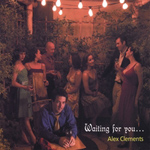Home » Jazz Articles » Album Review » Dewey Redman Quartet: The Struggle Continues
Dewey Redman Quartet: The Struggle Continues
Redman played with free jazz progenitor Ornette Coleman from 1967 through 1974, then teamed up with pianist Keith Jarrett's undeniably Coleman-influenced "American Quartet until 1976. Both gigs should have propelled him to greater fame, but perhaps it was the overwhelming dominance of both groups' leaders that prevented Redman from more popular acclaim as a broad-minded player with a robust tone.
The Struggle Continues starts where one might expect. "Thren is a Coleman-like blues—knotty, with bassist Mark Helias and drummer Ed Blackwell swinging hard as pianist Charles Eubanks sits out during Redman's solo, leaveing the saxophonist plenty of maneuvering space. Things move farther afield during Eubanks's solo, as Helias and Blackwell lock into a pedal point that drives the tension even higher. That Eubanks—brother of better-known trombonist Robin and guitarist Kevin—has remained well below the radar is a shame, as he's a strong foil for Redman.
Things become more unpredictable on the ten-minute "Love Is. Beginning with a dramatic flourish, it soon morphs into an elegant ballad that alternates between a straight 4/4 feel and what feels like a jazz waltz except, by staying in 4/4, means a dropped beat every third bar. Still, it all feels organic. Redman plays with economy and grace, supported by Blackwell's equally understated brushwork and Helias' firm pulse. Helias delivers an impressive solo that manages to retain forward motion with Blackwell while being just as lyrical as Eubanks' preceding solo.
Coleman and Redman both grew up in Fort Worth, Texas and cut their teeth on the R&B circuit, which Redman alludes to on the soul-drenched "Turn Over Baby. "Joie de Vivre is straight-ahead swing, while "Combination is a burning, up-tempo "time/no changes piece that's provides a more outré context for short but potent solos from everyone—especially a fiery exchange between Helias and Redman that leads into Blackwell's best solo of the set.
The disc ends on a mainstream bebop note with Charlie Parker's aptly (but not intentionally) titled "Dewey Square. Despite the occasional extreme, The Struggle Continues is one of ECM's most "in the tradition records outside of Jarrett's Standards Trio. Further evidence that the "ECM Sound has nothing to do with style or approach; it's another title from the ECM catalog that's long overdue on CD and proves Redman as a player underrated in life, but who will hopefully receive the attention he deserves posthumously.
Track Listing
Thren; Love Is; Turn Over Baby; Joie de Vivre; Combination; Dewey Square.
Personnel
Dewey Redman
saxophone, tenorDewey Redman; tenor saxophone; Charles Eubanks: piano; Mark Helias: bass; Ed Blackwell: drums.
Album information
Title: The Struggle Continues | Year Released: 2007 | Record Label: ECM Records
Tags
PREVIOUS / NEXT
Support All About Jazz
 All About Jazz has been a pillar of jazz since 1995, championing it as an art form and, more importantly, supporting the musicians who make it. Our enduring commitment has made "AAJ" one of the most culturally important websites of its kind, read by hundreds of thousands of fans, musicians and industry figures every month.
All About Jazz has been a pillar of jazz since 1995, championing it as an art form and, more importantly, supporting the musicians who make it. Our enduring commitment has made "AAJ" one of the most culturally important websites of its kind, read by hundreds of thousands of fans, musicians and industry figures every month.






















